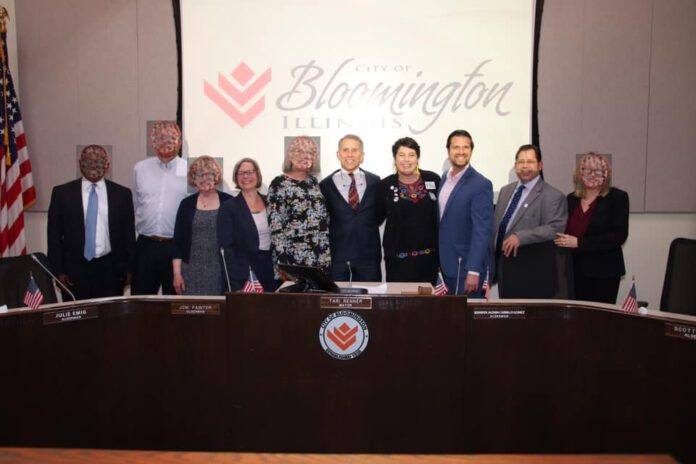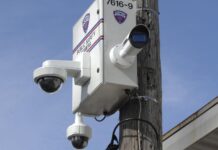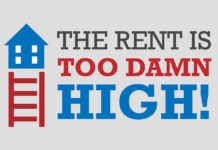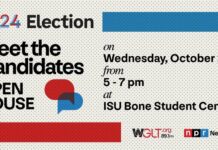On Monday, April 20th, 2020, Bloomington City Council heard from city staff about the impact of COVID-19 on tax revenues, an assessment of the City’s cash reserves, and the projected 2021 budget starting May 1st. City staff used financial models similar to the 2008 recession to determine the current deficit. Since mid-March when the first restrictions on movement were implemented to limit the spread of COVID-19, the City estimates it has seen a $5 million reduction in tax revenues. Most of the projected reductions come from lack of video gaming sales (which is currently prohibited under the governor’s orders) along with a reduction in fuel, entertainment, alcohol, etc.

Now that Governor Pritzker has extended the Stay-at-home order until at least June, the City of Bloomington is projected to see an additional $2 million reduction in tax revenue. Both Mayor Renner and City Manager Gleason said the City’s current financial situation is good, but not great. “We won’t understand the full impacts for a couple months. Our recommendation is to avoid irrevocable decisions for at least a couple months,” said Gleason. “There are a lot of municipalities that are suffering tremendously. That is not our position today, not to say we couldn’t get to that situation.” This is largely thanks to a healthy pre-COVID local economy, prudent financial savings from past city councils, and high city bond & credit ratings. The city currently has cash reserves close to about 20 million, and City Manager Gleason expects the City will need to dip into the reserves to plug gaps caused by decreasing tax revenue. In order to offset the $2 million a month short fall from COVID-19, the council will either have to find cuts, or rely on reserves.
“This is exactly why we spent time and effort building up that emergency fund balance,” said Ward 1 Alderperson Jamie Mathy. “So, in a scenario where we don’t end up reopening till July 1, we would still be okay. I think there are communities in Illinois that can’t say the same thing. While we are not going to be happy, we would at least be solvent.”

Many groups in the community have been calling on the City of Bloomington to utilize these cash reserves to give direct aid to those Bloomtons affected by COVID-19. Illinois People’s Action, Black Lives Matter BloNo, and DSA Blono, have been holding weekly virtual meetings with community members, advocating direct aid to residents.1 These organizations believe the City of Bloomington should take some of the money in the City’s cash reserves, and direct it to the Township for distribution to the needy. Townships are the arm of local municipalities that offer emergency direct aid to those in need. However, the normal requirements for Township assistance is very high (you basically have to be about to get evicted and no where to go) meaning very few actually qualify for assistance. And, the assistance given is usually only a few hundred dollars a month.
The general fund is as full as it is because city staff has a general policy of having at least two months of expenses saved up in case of emergencies. Right now, that’s about 18.6 million dollars. Ward 7 Alderperson Scott Black, zeroed in on this number pointing out that any money used for anything would not be the $20 million dollar number being thrown around by activists. Dipping below 18.6 million in reserves could effect the city’s bond ratings, meaning it would have to pay higher interest if it were to take out loans for whatever reason. At least as far as Black is concerned, any direct aid money would come out of the $1.6 million, and he is very unlikely to support a proposition that would drain the funds below the limit staff has chosen to keep. However, since we already know the stay-at-home order is going till (at least) June 1st, that’s $2 million already projected to be lost in tax revenue. Considering how difficult most municipalities are doing during the pandemic, temporarily dipping below $18.6 doesn’t seem likely to harm the city’s financial situation too much.
On Monday, Ward 8 Alderperson Crabill attempted to start an official direct aid conversation with city council. “In March, more than 5,000 people filed for unemployment benefits compared to 400 in February,” said Crabill. “At some point, moratoriums will end and rent and mortgage payments will become due. We also know from experience that during times of economic recession, charitable giving drops. The city can coordinate with nonprofits, but the city needs to take the lead. Our residents need some of that money back. I suggest any aid be administered through the Township, a governmental body accountable to us as trustees. We should make sure aid only goes to those in need. Eligibility should be simple based on job status, residency, and what expenses they’d have to pay. The goal should be to put money into people’s hands as quickly as possible ”
Crabill’s proposition was met with a combination of skepticism and outright opposition.
“We do need to be very precise. I don’t know that starting off with having a blanket, open conversation without a basic framework is going to be helpful to anybody; I feel it might just be a waste of time,” said Alderperson Mathey. “This seems overly vague right now, and I don’t know that it would be a good use of staff time.”
Ward 3 Alderperson Mwilambwe echoed similar statements.
Ward 2 Alderperson Boelen and Ward 9 Alderperson Bray chastised direct aid supporters as overstepping the bounds of government responsibilities. “We need to keep in mind that the councilmembers have fiduciary responsibility.” said Boelen, “And, I’m not sure the role of a municipality is to provide direct aid to the citizens.” Alderperson Bray, in her Karen impersonation said, “This simply evidences a complete lack of focus on the roles and responsibilities that are charged to us as municipal officials. We have significant responsibilities and deliverables.”
The same alderpeople who clamor endlessly about fiduciary responsibility are the same ones who not five weeks ago approved over $1,322,600 to buy several vehicles to replace currently working vehicles that have around 100,000 miles on them. Staff mentioned at the time these were not essential purposes. Spare us your diatribes about fiduciary responsibility.
The fiercest opposition came from Ward 5 Alderperson Painter, who in a rambling, almost apoplectic tirade, said this, “I think that having a further conversation on this will just stir up more wide-spread panic. “You people!” she said with a venomous tongue, “You people that think the city needs to kick in, which we really cant because dragging on this we might have to dig into $9.5 million. Um… no… no.”
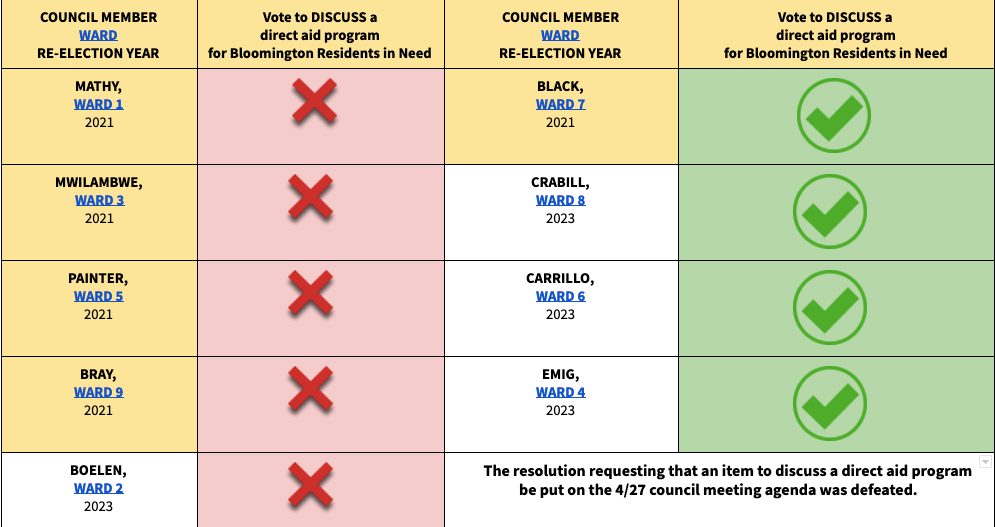
Ward 4 Julie Emig and Ward 6 Jen Carrillo both supported Crabill’s proposal with Carrillo saying, “All needs certainly are not being met and we need to kick in to fill the gap to assure the well-being of our community members. There is nothing wrong with having an open, transparent conversation in the public without all the details needed to be baked ahead of time and behind the scenes. I don’t think that’s a democratic process and I’d like to have this conversation in public.”
Alderperson Emig stated, “I think it is definitely important to have this conversation. However, it is to inform something more precise going forward. I think we will get a lot of relevant information from others as we discuss this. It provides an opportunity for input and it takes it to the public arena which is very important. I maintain we do need to balance our responsibilities with data-driven need. But, having a conversation will get us closer to that point.”
The proposal to start a conversation on direct aid was NOT passed by a 5-4 vote. Mathey, Boelen, Mwilambwe, Painter, and Bray voted against, while Crabill, Ward 7 Alderperson Scott Black, Carrillo, and Emig voted in favor.
Both Alderpeople Painter and Boelen were adamant there are already plenty of services available from corporations and non-profits, despite the fact many people do not qualify for stimulus checks and the unemployment benefits are overwhelmed and broke.

Yet, the most important question for direct aid proponents right now is, why was it necessary this be brought up at City Council at this date? The direct aid proposal being voted down does not just mean a conversation towards a direct aid plan won’t be on tonight’s agenda. According to council rules, it also means no alderperson can bring up the issue for another six months. The only way to get direct aid on the agenda would be for City Manager Gleason to propose it, and he won’t do that unless he knows there are five votes. The only alderperson who voted ‘no’ but may be willing to change to a ‘yes’ is likely Jaime Mathey who said he prefers a far more concrete proposal before moving forward. Because (theoretically) Mathey would be the clinching vote, from an electoral perspective the ball is his court, and direct aid advocates seem to have unnecessarily ceded ground by taking a publicized loss and losing the ability to force issues on the agenda. So I ask again, was it necessary direct aid be brought up last Monday?
Bloomington City Council meets again tonight at 6:30 and will hear several presentations about the COVID-19 impact on the community. The presentations will include Mclean County Recovery Loan Program, United Way, and PATH.
This article was originally published on Strangecornersofthought.com.
- You can learn more about their demands here.


